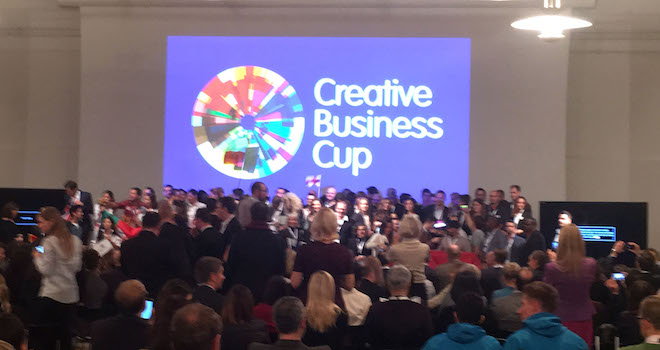Key Takeouts from the EBAN Winter University in Copenhagen

I’m not a fan of Conferences. Don’t get me wrong but due to the busy work schedule I’ve always thought of them as a distraction and there is simply not enough time for them.
Coming from an Internet Marketing and business background, I’ve always been watching startups from the inside but never from an investor’s point of view. I always had to help their Internet Marketing strategy and align it with their business goals to help them achieve the best possible results.
Joining the StartTech Ventures group 4 months ago, I seriously had to learn more about investing and more specifically angel investing so apart from late-night reading, I thought that an event would also help.
Opportunity presented itself at Copenhagen’s EBAN Winter University 2015 & Creative Business Cup and I represented StartTech Ventures in the event.
The takeaways were many and the knowledge gained really helped me see above my obvious goal, which was to learn more about investing but also made me focus on being a better entrepreneur.
What I found out in contrary to past events I have attended is that people were eager to share their knowledge and experiences with other investors in a fully transparent way. It’s not about a closed circle of friends that help each-other but a group of individuals who seek opportunities that would not only help themselves but others too.
After all, co-investments help the startups themselves tremendously because it is much better to combine the knowledge, experience, connections and money of many investors rather than one. That’s how startups can benefit the most.
What I’ve learned has really helped me tremendously in many difference aspects of investing and in the life of a startup:
Focusing on the right things
Attending this event and especially the Business Angel Master Class, helped me focus on the right things when evaluating a startup:
First and most common reason for a startup to fail is that there is no actual market need for that product or service, so before investing in one, see if there’s enough need for that product before you even begin to invest in further development.
One important aspect is also cashflow. It’s perfectly understandable for a startup to “burn” money in order to gain traction, gain their first revenues, and build a solid base to help the company grow to the next stage. But all those expenses should always be made having the remaining funds in mind. There’s no point rushing into a market if that rush is too risky and only gives us 3 more months lifespan if not everything goes according to plan.
The third most common reason for a startup to fail, but it should be the first when evaluating a startup for a possible investment, is the team itself. What is the chemistry of the team members, what are their competencies, how many years of experience does each have in their field, and everything else that will give us a better understanding of how the team can perform in a startup environment. Because after all, it’s one thing to be amazing at your work and another to be able to perform the same tasks in a startup environment.
As a personal favorite, and all taken from Søren Hougaard’s amazing Business Angel Master Class in Copenhagen: Every startup should first and foremost see exactly what their strengths and core competencies are and then start defining KPIs using their resources, not the other way around. Most of the startups and sometimes pushed by us, to try and find what the business KPIs are and then try to gather resources or utilize people from other positions / skills trying to achieve their goals.
Knowing your strengths and focusing on them to help you achieve goals doesn’t mean that you’ll leave everything else behind. You should always try to find workarounds and solutions to problems you have but you should always try to focus on what you can perform best, first.
New ideas and best practices
Events like this, can become the best place to get inspiration for new ideas and new resourceful ways to become much better, to evolve.
For example the city of Porto announced a sort of crowdsourcing campaign for their own city. They divided their needs into 4 different areas (for example transportation) and assigned a budget of 250.000 Euros to each one. Entrepreneurs and startups can submit their proposals and tackle a problem of the city or offer a new service for it’s residents. One of those startups / companies will win the “competition” and undertake the project.
Portugal and Turkey have created an Angel investor program to help their angel investors and their startups. The government matches the investments of their accredited investors, helping them grow.
Last but not least, the eResidency program of Estonia is becoming a model when it comes to how a Country can shift to being more efficient and productive through technology. It’s an amazing effort and I urge you to view their Presentation to learn more about it!
Meeting new people
The true value though, comes from the experiences of other investors, other startups, and really helped me get a better understanding on why something worked better in one startup and not in another. It’s all about exchanging ideas, strategies, best practices, and why not co-invest to help share a brighter future for the startups involved. 🙂
The creative business cup competition was also very interesting with many promising startups, interesting concepts and great business plans. It’s great to see how every startup uses different methods to help their company grow and at the same time, finding patterns that are universal no matter what the niche is. If you want to see the ones that got awarded in the competition, please check the winner’s page.
Can’t wait for the next eban conference, see you there 🙂
